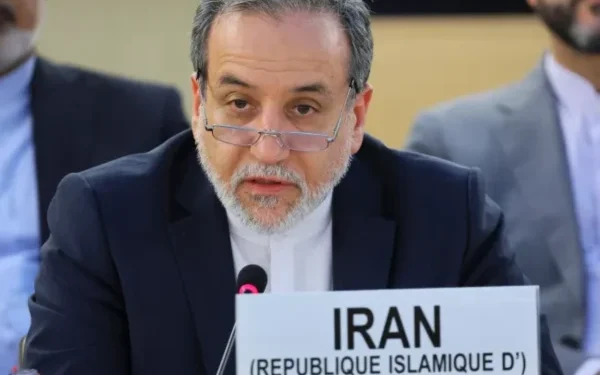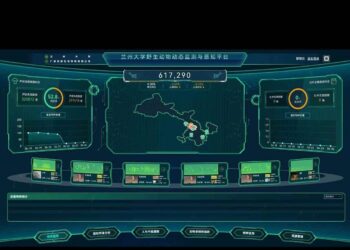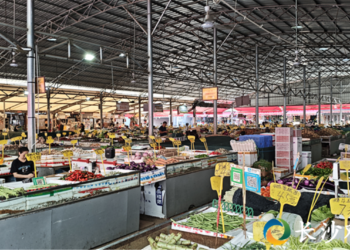Ankara: Iranian Deputy Foreign Minister Abbas Araqchi has arrived in the Turkish capital Ankara to participate in a highly significant meeting of the Organization of Islamic Cooperation (OIC). This gathering comes at a time when the geopolitical climate in the Middle East is at a critical tipping point, particularly due to rising tensions between Iran and Israel, which have sparked international concern.
The meeting is expected to draw representatives from more than 40 member states, including numerous foreign ministers from across the Muslim world. The agenda is likely to be dominated by discussions of recent Israeli airstrikes on Iranian territory, and the appropriate diplomatic, political, and potentially economic responses from the Muslim bloc.
Backdrop of Escalating Iran-Israel Conflict
The timing of the OIC meeting could not be more urgent. Over the past few weeks, the already strained relationship between Tehran and Tel Aviv has deteriorated further following a series of retaliatory airstrikes and hostile rhetoric.
The latest escalation began when Israel launched a targeted military operation on Iranian soil, which Tehran has labeled as a violation of its sovereignty and international law. Iran has since vowed retaliation and held several high-level meetings with regional and global powers to strategize its diplomatic and military response.
It is in this tense environment that Abbas Araqchi, one of Iran’s most seasoned diplomats, has arrived in Turkey to push Iran’s stance within the OIC and garner support from fellow Muslim-majority nations.
Pre-OIC Diplomacy: Abbas Araqchi Meets European Leaders in Geneva
Before arriving in Ankara, Deputy Foreign Minister Abbas Araqchi stopped in Geneva, where he met with several European Union leaders and diplomats from France, Germany, and the United Kingdom. The purpose of these discussions was to explore diplomatic solutions to the crisis and to stress the importance of pressuring Israel to halt its military campaign.
According to Iranian state media, Araqchi emphasized Iran’s commitment to regional stability, but made it clear that Iran cannot remain passive in the face of repeated Israeli aggressions. He warned that continued Israeli provocations could draw the broader region into an open military conflict, with devastating consequences for global security.
Turkey’s Mediatory Role: Erdogan Contacts Trump Twice
Turkey, hosting the meeting, is also playing a prominent mediating role. Turkish President Recep Tayyip Erdoğan has emerged as one of the most vocal critics of Israeli military actions and has called for Muslim unity in countering Israeli aggression.
Reports confirm that Erdoğan spoke to U.S. President Donald Trump twice in the days following the Israeli strike, urging Washington to intervene diplomatically and help de-escalate the crisis. However, President Trump has thus far shown little interest in reining in Israel.
In a public statement on Friday, President Trump said, “It is very difficult to ask Israel to stop bombing Iran at this time,” implying a green light for Israeli military operations. Trump’s remarks have been interpreted by many observers as evidence of unconditional U.S. military and political support for Israel.
Key Objectives of the OIC Meeting
The OIC meeting in Ankara is expected to serve as a pivotal forum for multilateral Muslim diplomacy. The primary focus will be on:
- Condemning Israeli military aggression and calling for an immediate ceasefire.
- Discussing coordinated economic or political sanctions against Israel.
- Crafting a joint resolution or statement to be presented to the United Nations and international community.
- Exploring ways to support Palestinian civilians affected by ongoing violence in Gaza.
- Evaluating the role of U.S. foreign policy in exacerbating regional tensions.
Diplomatic insiders suggest that Iran, Turkey, Malaysia, and Qatar will be among the countries pushing for the strongest condemnation and possible sanctions on Israel. However, other member states such as Saudi Arabia and Egypt are expected to adopt a more measured approach, preferring diplomatic language over direct confrontation.
The Role and Relevance of the OIC
The Organization of Islamic Cooperation is the world’s second-largest intergovernmental organization after the United Nations, consisting of 57 member states. Its mandate includes safeguarding the interests of the Muslim world in political, economic, and humanitarian matters.
Over the decades, the OIC has issued numerous statements on Palestine and Jerusalem, but critics have often accused the organization of being ineffective or symbolic in its actions.
However, the current crisis presents an opportunity for the OIC to reassert its relevance on the world stage. Many analysts believe that a unified stance, particularly one backed by major regional powers like Iran and Turkey, could shift diplomatic pressure onto Israel and its allies.
Global Reactions to the Crisis
While the OIC gathers in Ankara, international reactions to the Iran-Israel conflict remain mixed:
- European countries, especially Germany and France, have expressed concerns over the escalating violence but stopped short of condemning Israel directly.
- The United Nations Secretary-General António Guterres has called for restraint and peaceful resolution, emphasizing the humanitarian crisis in Gaza, where over 55,000 people have reportedly been killed since the start of the hostilities.
- Russia and China have condemned Israel’s actions and urged the United States to adopt a more balanced approach in the Middle East.
Iran’s Position: Diplomacy Coupled with Resistance
Iran has been clear that while it prefers diplomatic engagement, it reserves the right to defend its sovereignty. Iranian Foreign Ministry spokesperson Nasser Kanaani recently stated that Iran is in contact with regional and global partners to build a “coalition against Israeli aggression”.
The meeting in Ankara is seen as one of Iran’s first steps in launching such a diplomatic campaign. According to sources, Araqchi is expected to present a comprehensive dossier during the OIC meeting, including photographic evidence, intelligence assessments, and casualty reports related to Israeli strikes.
What to Expect Next: Possible Outcomes of the OIC Meeting
Although consensus among the OIC’s diverse members is often difficult, there are several possible outcomes from this crucial meeting:
- Joint Declaration: A collective condemnation of Israeli actions, demanding an immediate ceasefire and respect for international law.
- Economic Proposals: A call for reviewing trade relations or boycotting Israeli goods.
- Humanitarian Efforts: Increased coordination for aid delivery to Gaza and support for Palestinian refugees.
- Legal Measures: Recommendations to pursue war crimes investigations at the International Criminal Court (ICC).
- Diplomatic Initiatives: Formation of a special OIC delegation to engage with the UN Security Council, EU, and non-Muslim countries for broader support.
Conclusion: A Pivotal Moment for Muslim Unity and Middle East Diplomacy
The arrival of Abbas Araqchi in Ankara and the convening of the OIC meeting mark a critical juncture in Middle Eastern diplomacy. With the Iran-Israel conflict threatening to spiral into a broader regional war, the role of multilateral organizations like the OIC becomes increasingly significant.
Whether the OIC will be able to move beyond symbolic resolutions and take tangible, united action remains to be seen. However, for Iran and its allies, this meeting is a strategic platform to challenge both Israeli actions and what they perceive as Western double standards in handling Middle East conflicts.

























